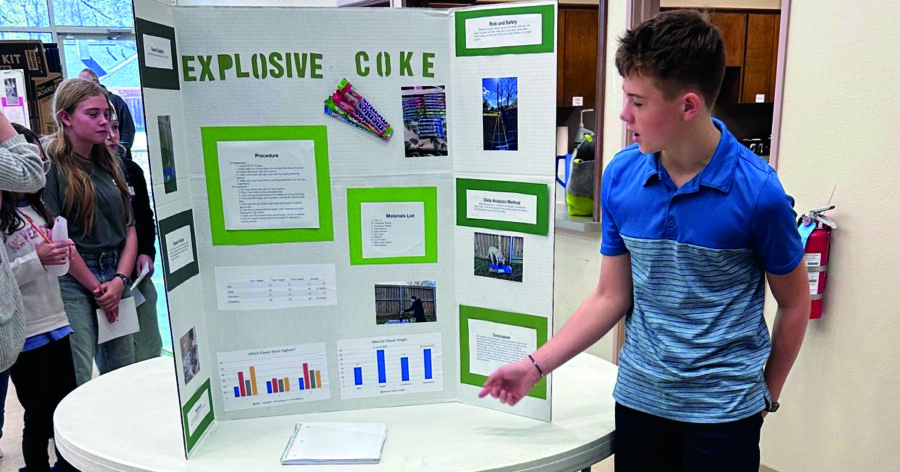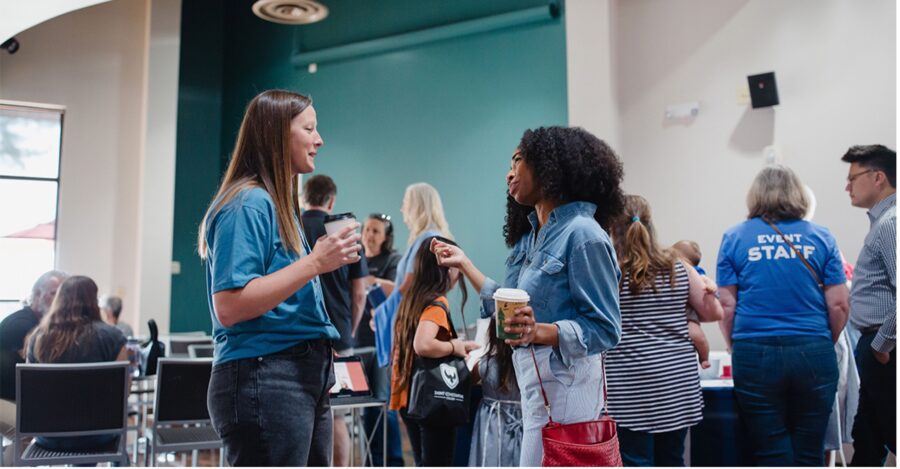If the words “science fair” fill you with dread, you’re not alone. Many homeschool parents feel uncertain about guiding their child through a science fair project. But what if this challenge could become an incredible learning opportunity for both you and your student?
As a homeschool mom who once dreaded science fairs, Jennifer Courtney, Chief Academic Officer at Classical Conversations Multimedia, offers practical tips and lessons from the Challenge A guide to help you transform science fair anxiety into a meaningful learning experience.
Whether you’re intimidated by the experiments, unsure how to guide your child, or hesitant about stepping outside your comfort zone, Jennifer encourages parents that participating in science fair is worth the effort and deeply rewarding too.
Discover how to make your science fair experience not just manageable but memorable and how you and your child can grow in knowledge, perseverance, and curiosity.
Overcoming Science Fair Fears
Imagine this: an episode of “The Twilight Zone.” The main character: a parent who did a horrible job on her junior high science fair project.
Fast-forward to the present day. The plot: the parent is now trapped in an endless cycle of producing science fair projects until she finally gets it right.
In all seriousness, I must confess that I approached the Challenge A science fair project with a mixture of fear and dread. By the time I reached my son’s age, it had already been decided that I was a literature and languages person, not a science person.
Even though I found science texts interesting, and I made good grades, by age 13, I already wholeheartedly believed in the airtight categories of science people, math people, English people, art people, and so on. Therefore, I did not try very hard to come up with a great project; after all, no one expected me to—not even me.
Read How Classical Education Integrates All Subjects
I was determined that my son would have a completely different science fair experience. I just was not sure that I was equipped to give it to him. Still, I started off by expecting great things of both of us.
I am happy to report that he completed his project successfully and that we both learned a lot along the way. If you are like me, there are certain homeschool experiences that you fear and dread and may avoid altogether.
I hope the lessons we learned through our experience will encourage you to branch out of your comfort zone.
Lesson #1: Pick a Science Fair Topic that Interests Your Child
My son suggested we look for a chemistry-related project since I was teaching chemistry in Challenge III at the time. Brilliant!
After some quick Internet research, we found what seemed to be the perfect project for a 13-year-old boy who plays a lot of tennis. We decided to build a colorimeter to test the blue dye in sports drinks like Gatorade.
Even though we had some rough patches throughout this project, he remained interested in the main question because it was relevant to his life. He drank a lot of sports drinks.
Lesson #2: Pick a Science Fair Project Your Child Can Complete Mostly on His Own but that is Still Challenging
Here is where we fell down just a bit. The project we chose was labeled ‘average’ in its difficulty level. I later realized that the label on the Sciencebuddies website was intended for a much older student.
The first task for our project was to use a breadboard to build an electric circuit that would focus an LED light on a photocell. Then, we would place tiny containers of colored liquid between the light and the cell and use an electrical meter to read how the dye in the liquid interfered with the transmission of the light. All of this depended on correctly wiring the circuit and getting our LED to light up.
Uh-oh! This presented trouble of a kind that mom and dad could not solve since neither of us knew anything about building electrical circuits. However, we did know about how to find answers when we were stuck.
So, as a family, we decided to head to RadioShack (a store for folks who liked to build their own radios and electrical projects) to get some help (by this time, we had roped in Grandpa to work on the project, too). This trip and two others taught us the next important lesson.
Lesson #3: Relish Learning Something New Even if it Proves Harder than You Thought
After we tried researching online documents and videos that would help us repair our circuit, it became clear that we needed to take the old-fashioned approach—find real-life experts.
Learning from people interested in your topic is one way to find answers when we are stuck. During our multiple trips to RadioShack, we spent time with an employee who was working on a degree in electrical engineering and a customer who was working to patent a new microchip for street racers.
These two young men spent a good deal of time showing my son how to repair his circuit. More importantly, they explained how each component in the circuit works. They showed him how to read engineering diagrams of electrical circuits.
Not only did we receive an impromptu class from these electrical hobbyists, but my son, Ben, received a healthy dose of enthusiasm for wiring electrical circuits. He brought home several project guides and planned to expand on his newfound knowledge by building a doorbell and an alarm for his room.
Lesson #4: Carefully Complete Your Science Fair Experiment and Record Your Results Using the Scientific Method
Our Challenge A Tutor bought each student a composition book for their research notebook. Ben carefully recorded his materials, hypothesis, definitions, procedures, and results. This step taught him important study skills for college-level labs.
He learned each step of the scientific method and then learned to carefully record each step of his project. Finally, his dad spent a few evenings teaching him how to create graphs in Microsoft Excel for display on his board.
Embracing the Science Fair Journey: Lessons for Lifelong Learning
Looking back, we are so proud of Ben for his persistence and diligence. We are thrilled by our newfound knowledge of electricity, chemistry, and graphing. Familiarity truly breeds curiosity!
Today, Ben is experimenting with electrical circuits and creating graphs on his computer just for fun. This journey wasn’t just about completing a project. It was about nurturing a love of learning and perseverance that will last a lifetime.
If you’re about to embark on your own Challenge A science fair adventure, know that the process is worth it. From tackling new challenges to discovering unexpected passions, both you and your child can grow in incredible ways.
To learn more about how the Classical Conversations Challenge A program makes science fair an enriching experience, explore these blog posts and podcasts:
- Your Guide to a Successful Homeschool Science Fair
- What is Challenge A?
- Help Me Help My Student-Science Fair
Discover how our Challenge programs can help cultivate curiosity, confidence, and academic growth in your homeschool.





